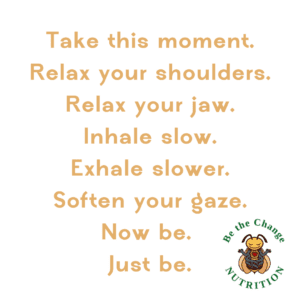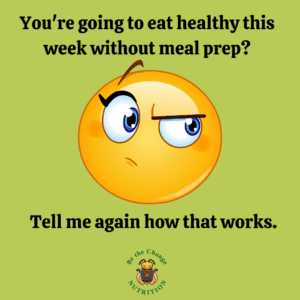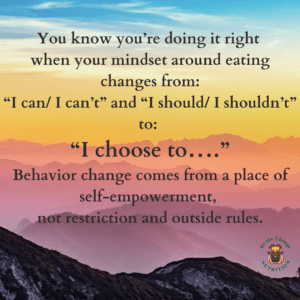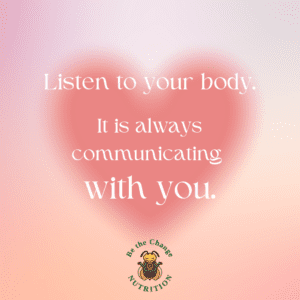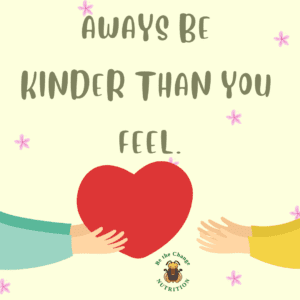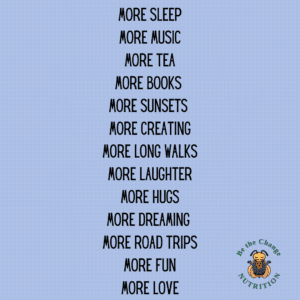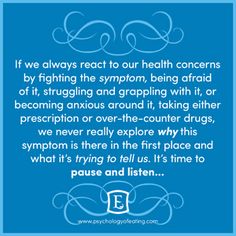
August is my birthday month.
Even though it falls in the final week, I start to think about it as soon as I turn the calendar over from July. I appreciate those few weeks for reflection, mental preparation and the occasional mini-bursts of delight that upcoming birthdays can bring. It may feel silly to admit it, but doesn’t that anticipation and thrill from childhood still live within our souls to some degree?
Birthdays can really make you think about life and how you got where you are. Like how did I get to be 45?
I imagine life as this long timeline that goes up to 100. You could live longer but truthfully most people die at some point before then. I plot my current number and see how far along I’ve come and wonder what I might have left. Remembering we aren’t here forever serves as a prompt to check in with ourselves and look at where we are and decide how we would like to take it from here. If everything is good, then great– we can keep doing what we’ve been doing. But if not– we can ask ourselves if there is anything that we’d like to change.

And so as the years pass, we live and we learn a few things about ourselves and about life, or so I like to think.
While many aspects of existence will always remain a huge mystery, I know I have acquired some valuable lessons that have helped me to become a happier, healthier person who has found peace with food and my body.
More importantly, this desire for a happy, healthy and peaceful relationship with food, eating and body image are very common themes that I see with my clients in my work. It would be nice if l could just tell them what to eat and that would solve everything. But there are beliefs and habits that need to be explored, mindsets to question and while nutrition IS about food, it’s also got a lot more to do with who we are as eaters.

3 Nutrition Lessons I Have Learned
1. Let go of the idea that there is one right way to eat that applies to everyone.
Please forget about your quest for the perfect diet.
As beautiful as this concept sounds, give up the search for an answer because it doesn’t exist.
I was on this pursuit for many years, believing that I would learn about the most healthful diet in the world and then educate as many people as I could. It sounded simple enough.
Yet what I discovered was, as much as I’d like to think nutrition science has uncovered all the answers, it has not. There are certainly a few agreed-upon fundamentals, but there is also a lot of disagreement among the experts. And if you’re a nutrition-nut like me, you already know– the more you read the research (and how it’s actually done) and the various theories on which foods are going to prevent cancer and which are going to give you heart disease and kill you– that no one really knows.
Health is about so much more than just food– we’ve all heard about some little old lady who is 103 and eats bacon, ice cream and M&Ms every day. And just as baffling are the sad stories of health-conscious eaters who exercise regularly but suffer a heart attack at 40. This doesn’t mean you lose all hope though!
I still believe that a whole-foods diet with lots of fruits and vegetables and less sugar, fried foods and refined grains is the way to go.
But… I learned to lighten up on myself when I DID eat some ice-cream or bacon and stopped believing that I was damaging my health.
Quite possibly the stress and worry that I was eating something “not-good-for-me” was more harmful that actually eating that food.
Once I was able to accept that there is no magical formula for a perfect way of eating, I could turn inward and relax into figuring out which foods worked best for ME and my lifestyle. Now I know what keeps me satisfied and feeling healthy and I eat to support that. I learned how to keep myself balanced with a diet of mainly beneficial foods while leaving some room for less-healthful-but-oh-so-yummy foods– and it feels amazing to discard the idea of bad/good foods and to eat in the way that feels right to me.
2. Be kinder to yourself and stop criticizing your body.
I don’t remember exactly when I learned this lesson but it wasn’t until sometime in my 30s. That is later than ideal but what breaks my heart is that I see women in their 40s, 50s and 60s who are still hating their bodies. If you hate your body, do you think it’s going to be easy to eat in a way that’s nourishing and caring for yourself?
Once I shifted my focus from physical appearance to self-care, acceptance, respect and love, eating healthier became so much easier.
I had to learn that there are some things we cannot change, no matter how healthy we eat or how much we exercise. Just like our height and our shoe size, we are born with genes for a specific body type and we only have a certain range of control over that. What can really help is to practice transforming all the energy used disliking certain body parts into gratitude for all you have.
Quit doing the things that make you feel bad about yourself (staring at your thighs in the mirror?) and do more of what makes you feel good about who you are (wearing a favorite shirt or pair of shoes!)
Let go of the need to lose weight or change your body.
Also, I learned to forget about what other people think. Because… they’re not.
As harsh as this sounds, they could care less if you or I don’t have a flawless body. Humans are extremely self-absorbed. We tend to live in our own heads and largely stay preoccupied with our own stories (which revolve around us of course). Know anyone like that? It took me a while to realize that other people are far too wrapped-up with worrying about what other people think of them to be too concerned with me. And that’s pretty freeing!
Focus on doing what you want and being who you are. Don’t be troubled with what you think other people think.
3. If healthy eating is important to you, you have to make food a priority.
If it’s not, it’s going to be really difficult to eat well. Everybody is busy with things to do– I get it. There are always excuses that can be conjured up to avoid healthy eating. But recognize that all those items on your long to-do list have various degrees of priority– where is food and eating ranked? Once you decide it’s got to take precedence and become a bigger focus, you will find the time you thought you didn’t have. But you have to make that decision for yourself.
If it’s important enough to you, you will make time to do the planning, shopping, preparing, cooking and clean up.
I had to learn how to reprioritize and do all of these things too. At first they were new and overwhelming, but they quickly became habits that now come naturally and that I even enjoy.
There was a time when I didn’t eat breakfast, rarely kept my kitchen well-stocked with good food and didn’t plan dinners which resulted in making some pretty poor choices for myself. When I switched from vegan back to omnivore I had no idea how to cook any type of meat– but learning to do this was important to me and so I figured it out. Start with something small and easy to accomplish and build from there once that one thing becomes a part of your routine.
When you make food a priority in your life you are putting yourself right at the top of your list and isn’t that where you should be?
All that being said, there will be those “I just don’t care” attitude days when healthy food may not take precedence and this is OK and completely normal. This absolutely happens to me too. Some days are tougher than others (PMS, LOL?) You haven’t made any mistakes or done anything wrong. Know that there is always another opportunity to choose different foods right around the corner.
There is never going to be a certain moment in time when you’ll be ready to start.
It’s now.
There is no date in the future when you’ll get there. It’s always now.
Healthy eating is an ongoing journey, not a destination that you reach one day and that’s it. Keep your priorities clear, know what is important to you and you’ll be heading in the right direction.























